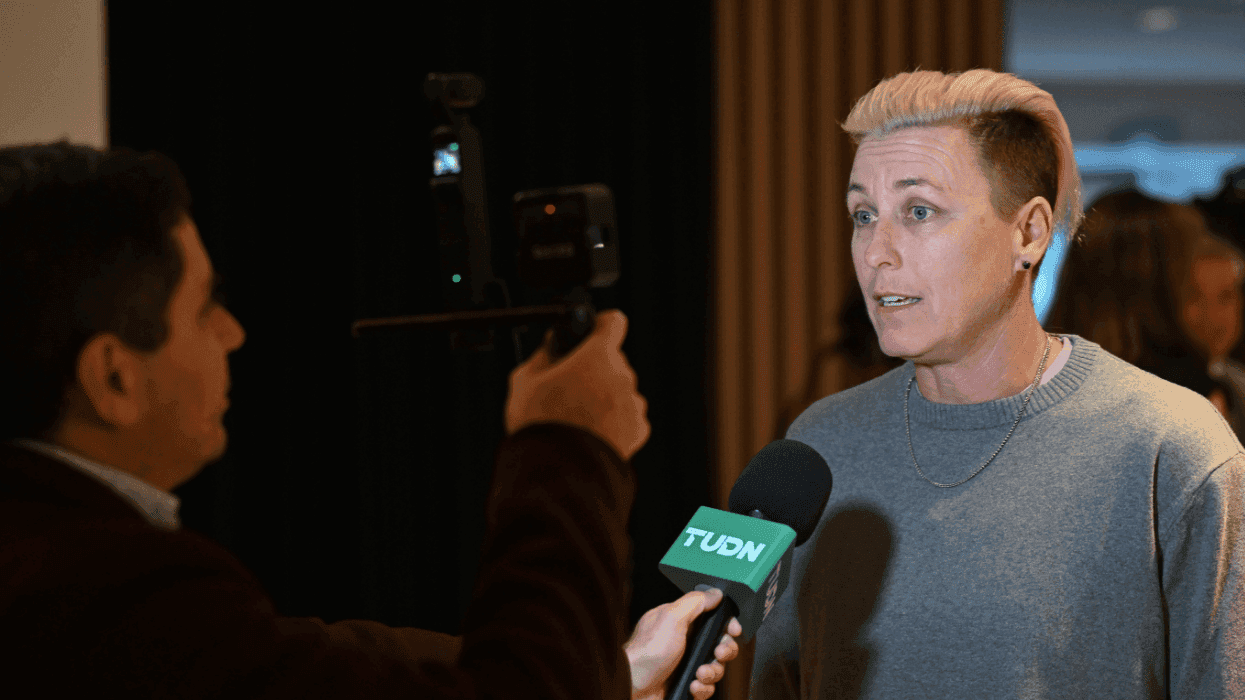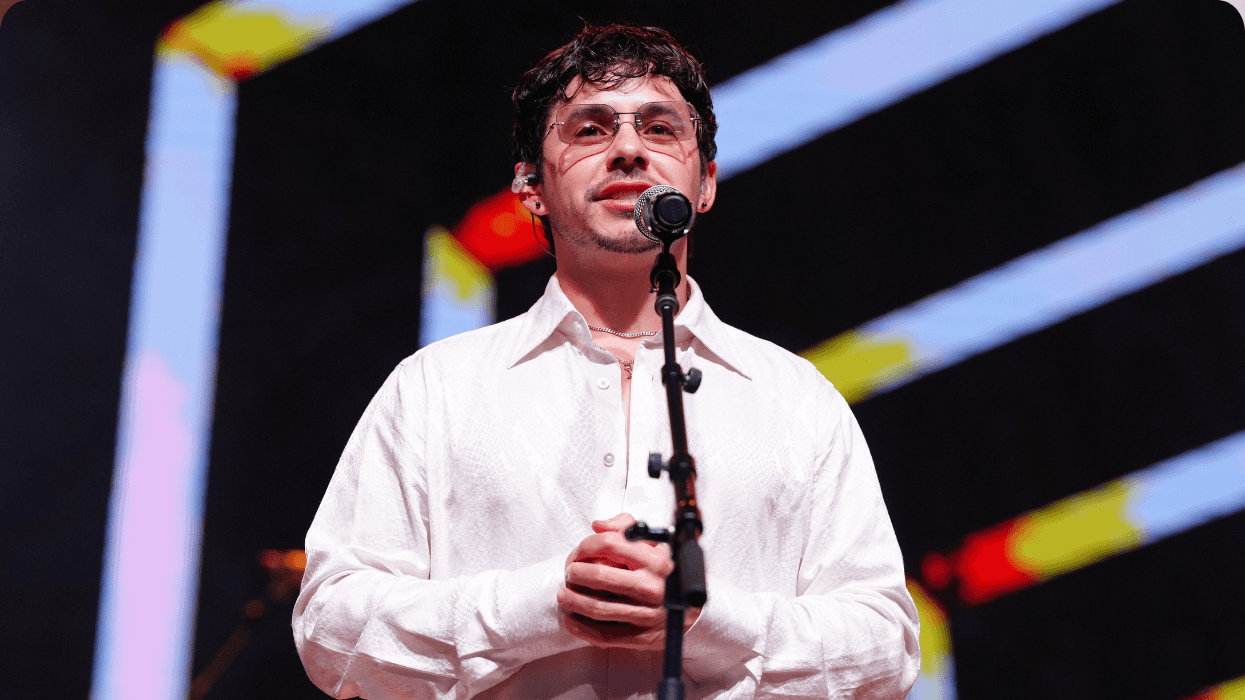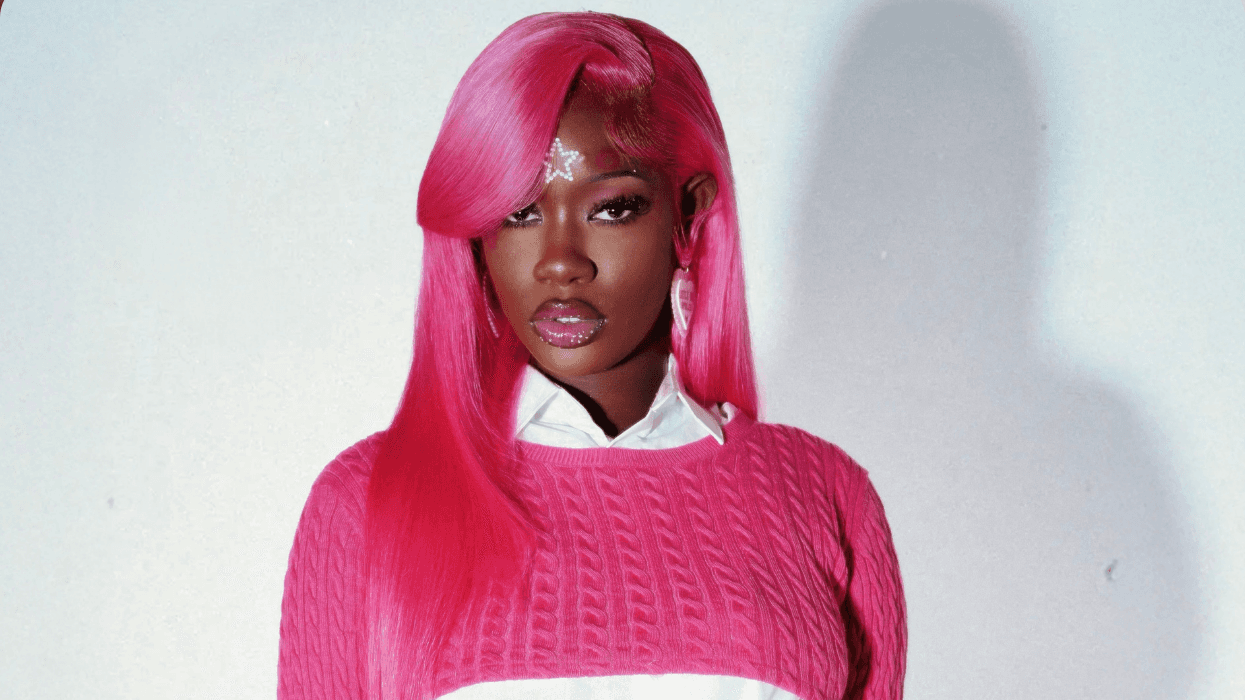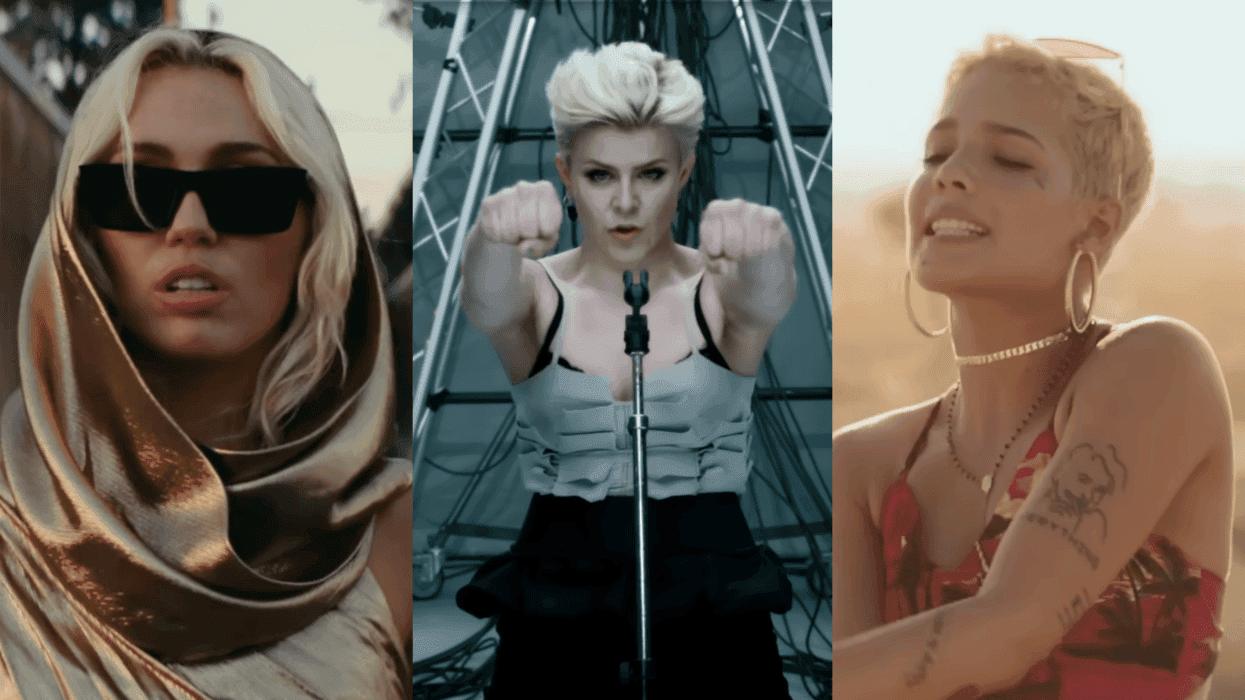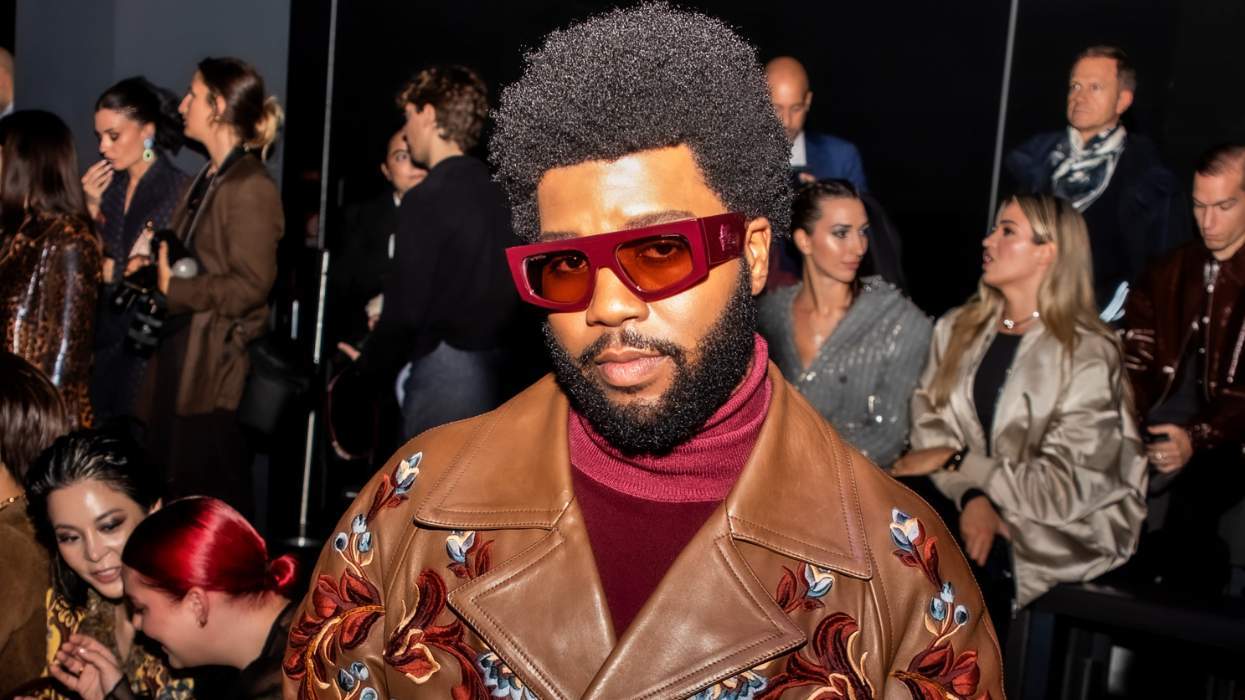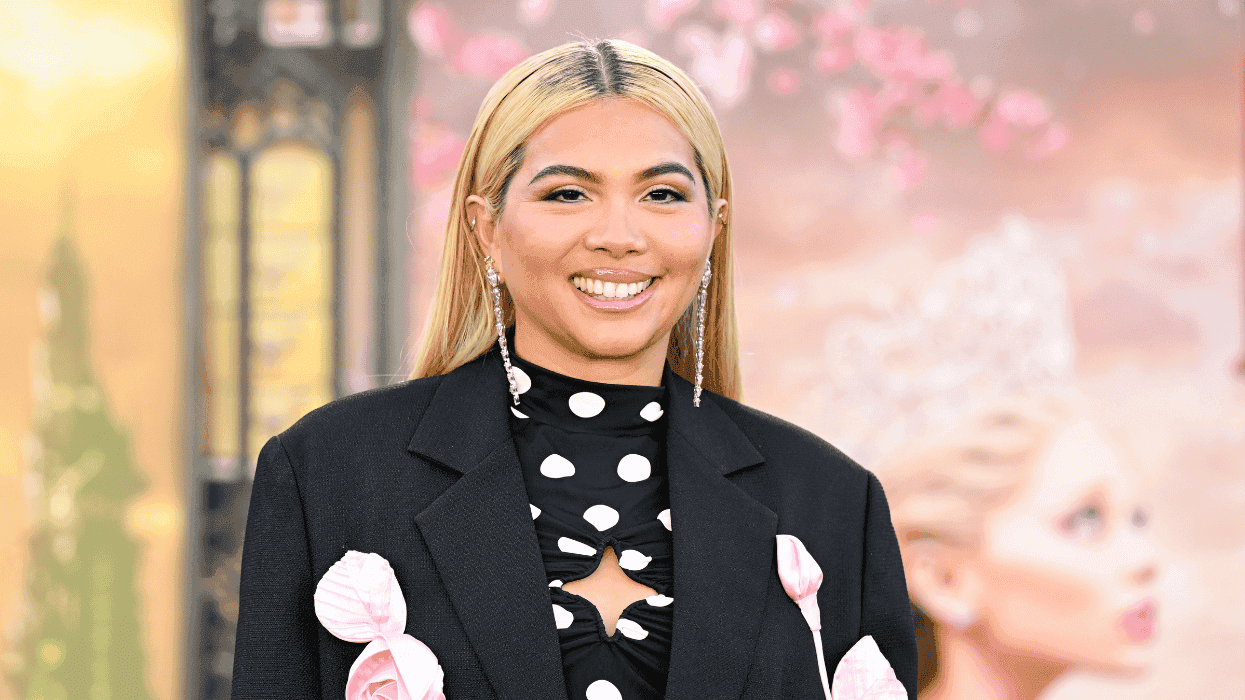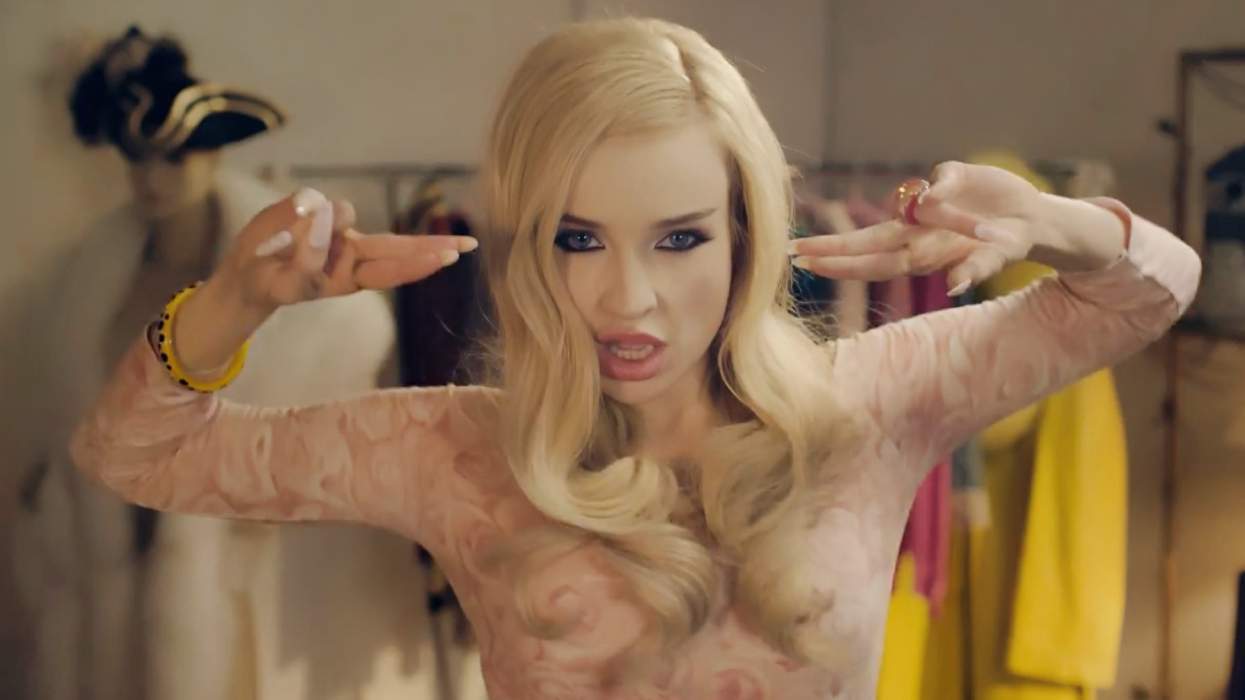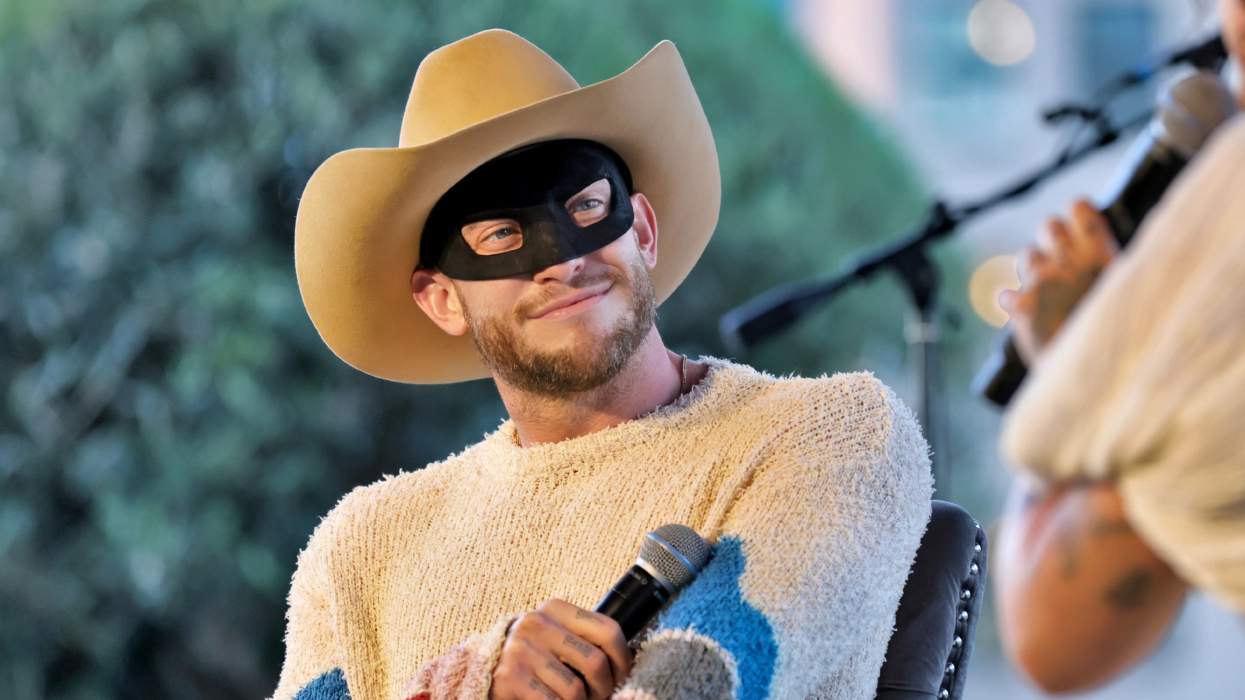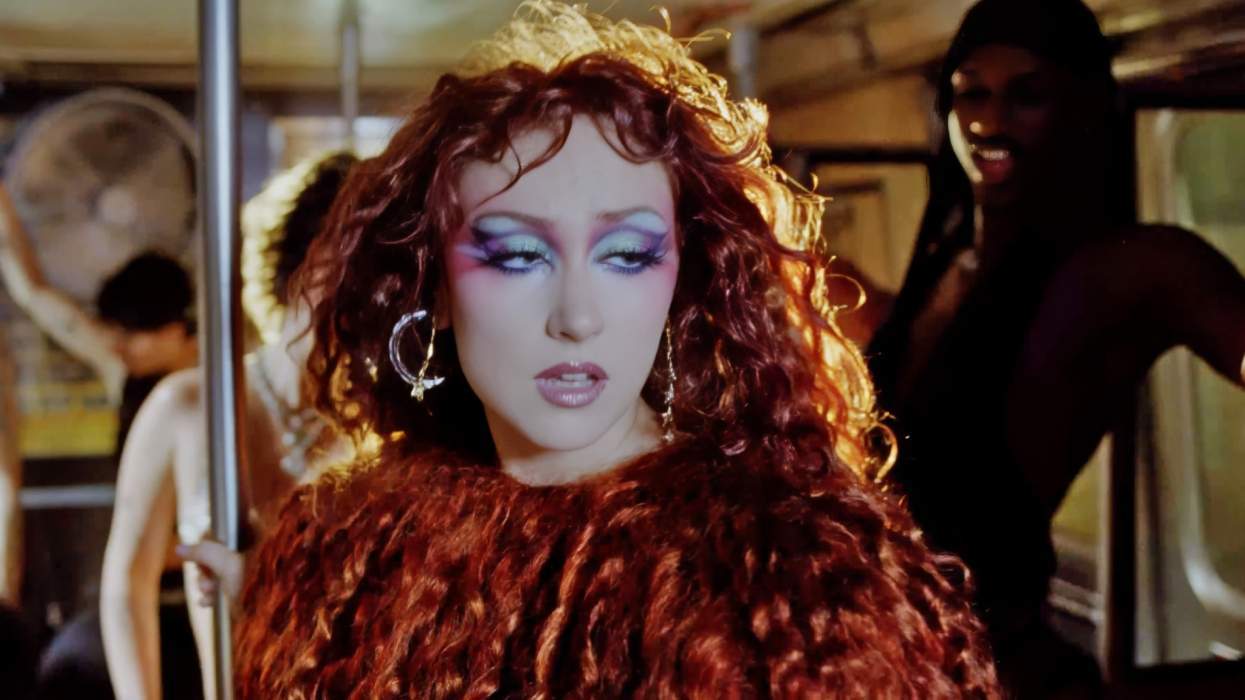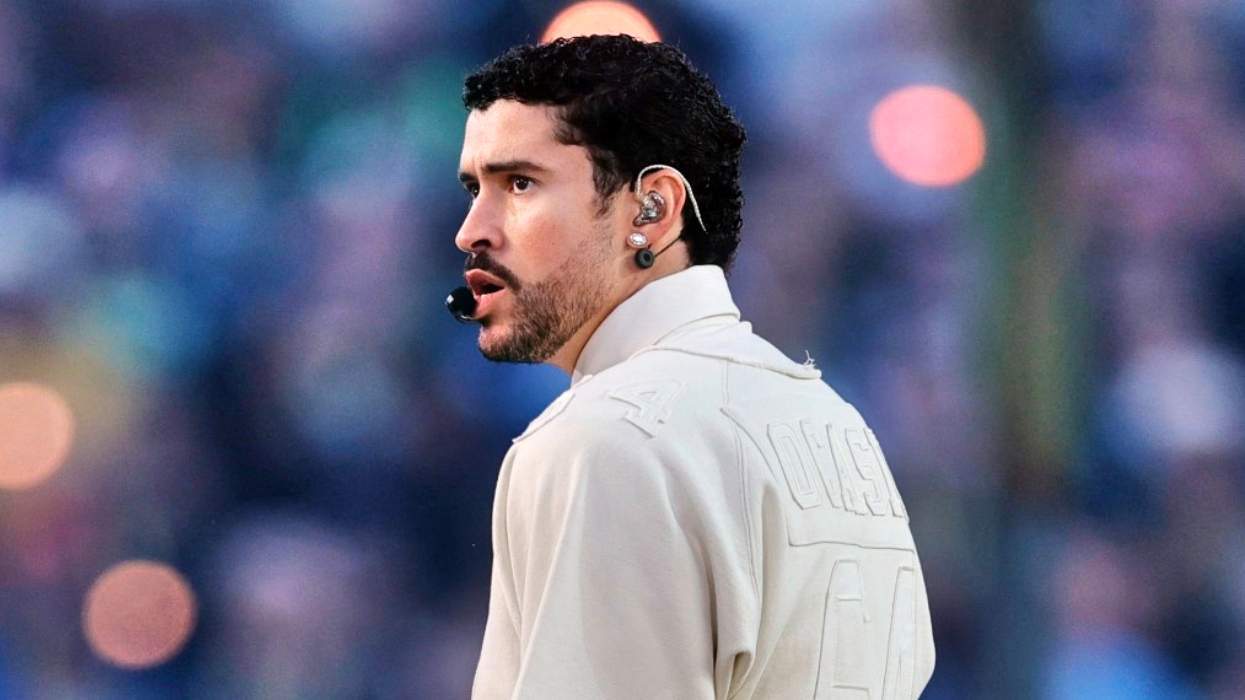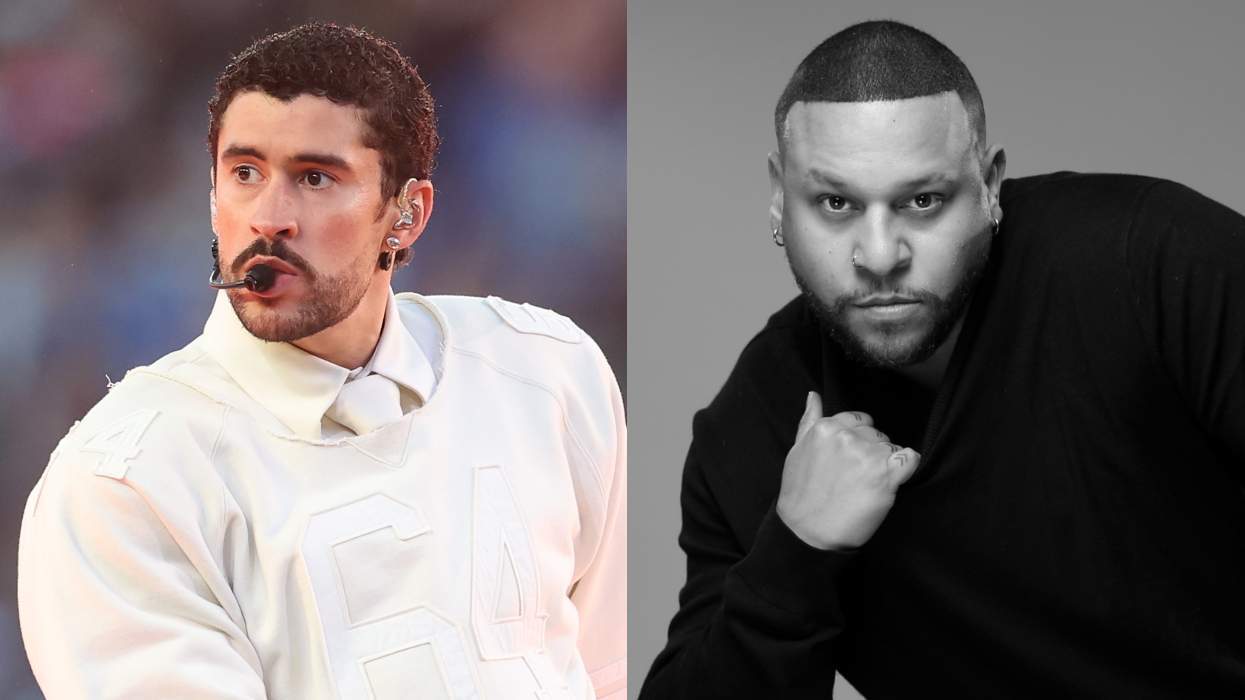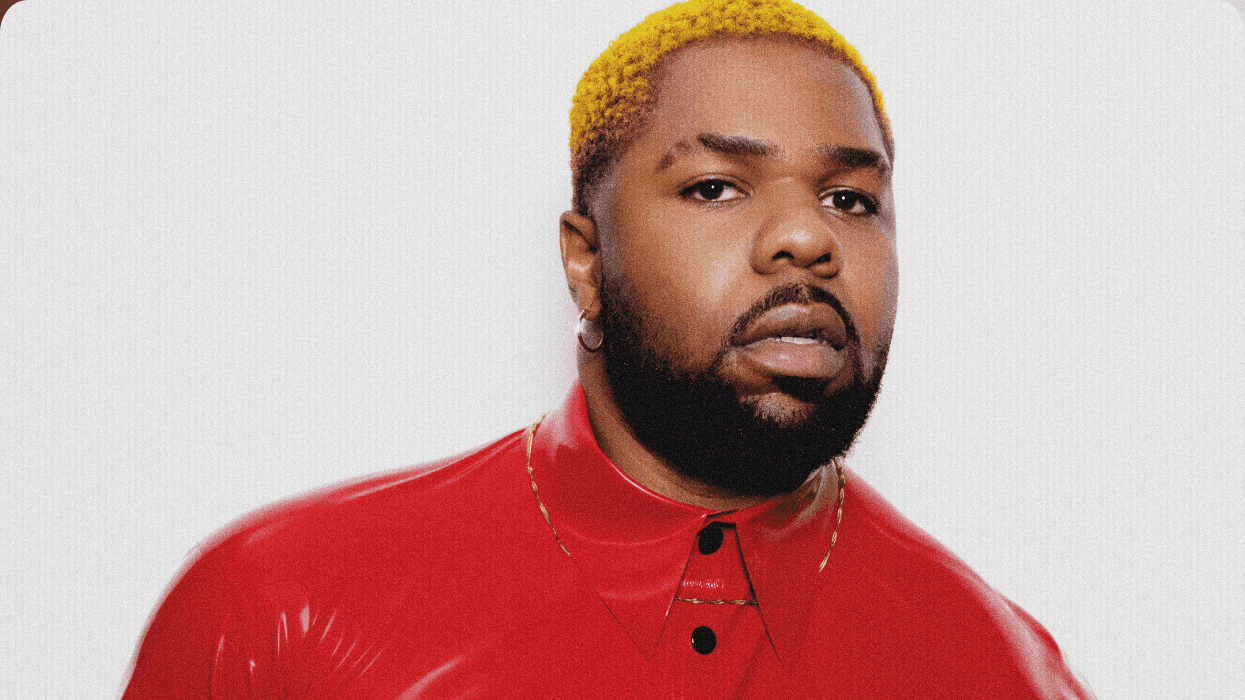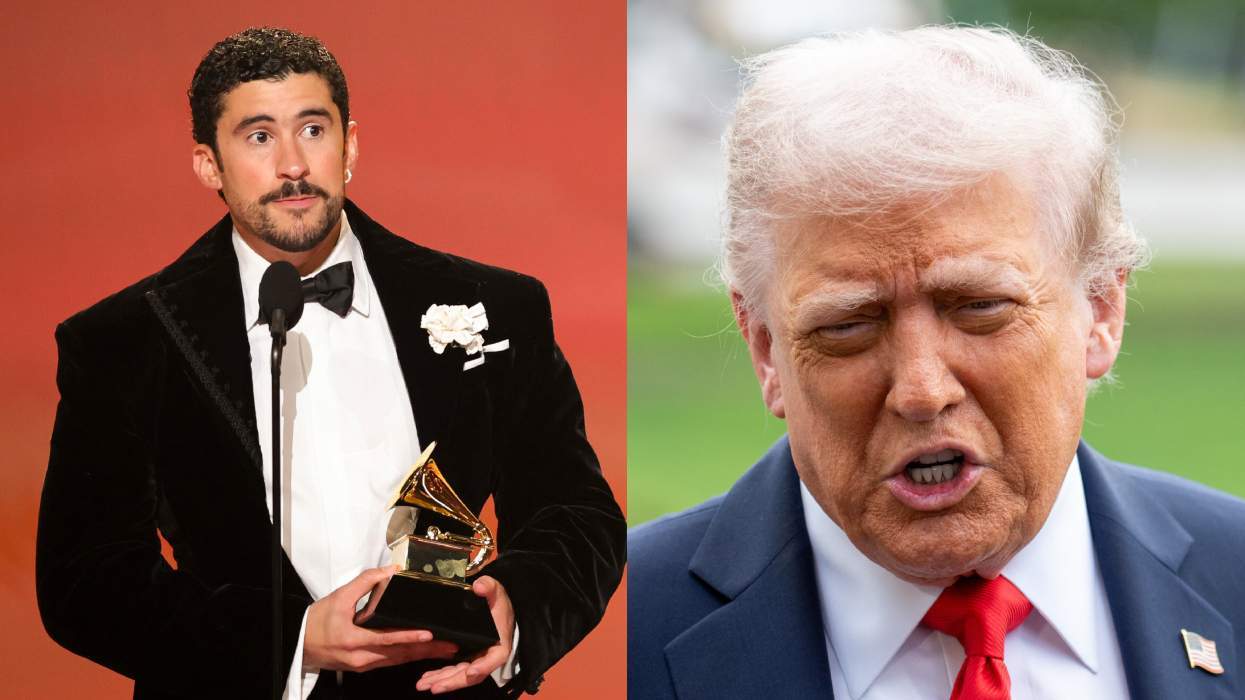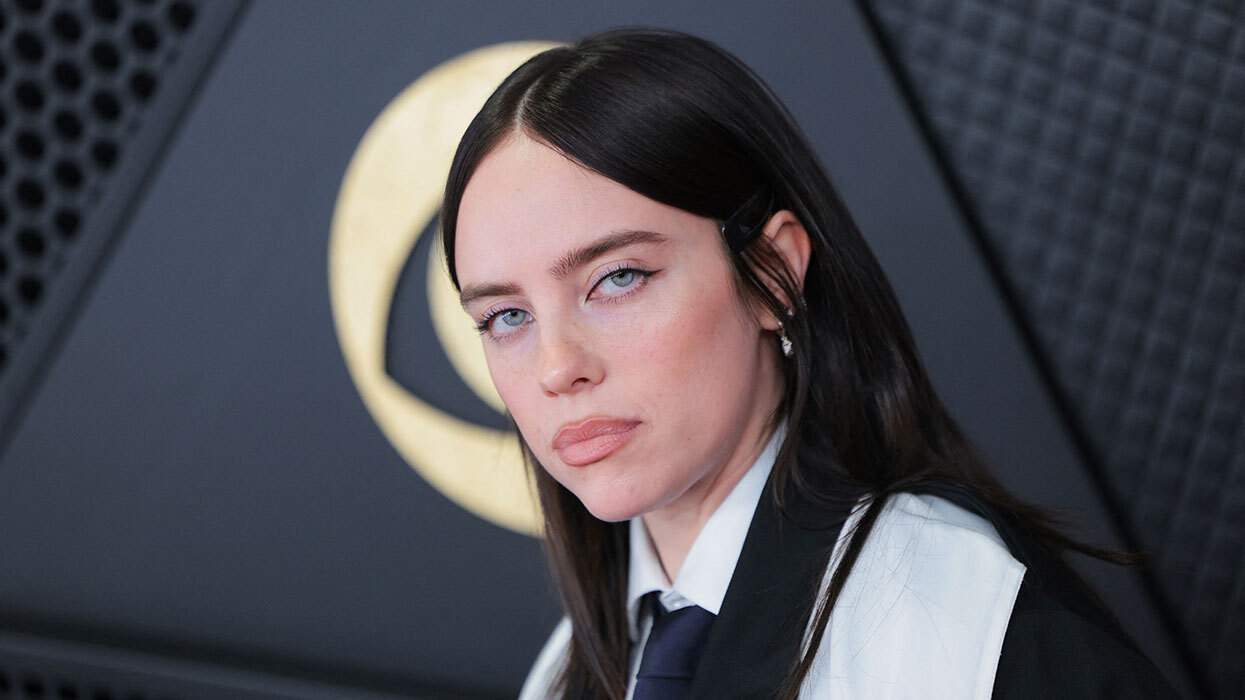Photography by Santiago & Mauricio | Styling by Lysa Cooper | Additional Styling by Ty Hunter | Makeup: Mally Roncal | Hair: Neal Farinah | Nails: Lisa Logan
If you pooled the collective memories of the staff at Parkwood, the small, can-do entertainment company that Beyonce built, you would have enough material for the world's longest biography. That it would also be a hagiography goes without saying; for those who work closest to her, Beyonce is, quite literally, flawless. Again and again you will hear that she is the hardest-working person in showbiz, the most demanding of herself, the least complacent. And all of this, you will realize, is most likely true. But in all of the accolades and glowing character references, you will also find little shafts of light that fall on their subject in illuminating and lovely ways.
There is Angie Beyince, vice president of operations, who grew up spending her summers with her cousins, Beyonce and Solange. "They loved Janet Jackson," she tells me. "We'd talk all night and watch Showtime at the Apollo and my snake, Fendi, would just be crawling around. He'd sit on our heads while we watched TV."
There is Ed Burke, visual director, who had never heard of Beyonce when he met her 10 years ago, responding to a request from a friend to shoot her for a day. He spent the next seven years trailing her around the world with a camera. In Egypt, he and Beyonce scaled a pyramid together as the rest of their group gave up or fell back. "It smelled like urine because there are no bathrooms up there," he recalls. "She looked like Mother Teresa, wearing this white dress and a head wrap, and when we got to the top she sang Donny Hathaway's 'A Song for You.' "
There is Ty Hunter, her stylist, who was working at Bui-Yah-Kah, a boutique in Houston, when he first met Beyonce's mother, Miss Tina, on the hunt for outfits for Destiny's Child. The two clicked. That was in 1998. "Miss Tina reminded me of my mother," he says. "I call Bey and Solange and all the girls in Destiny's Child my sisters. The family is just, you know, humble--not what people think it is. The picture [of Beyonce] is 'diva, diva, diva,' but I've been here this long because she's not."
There is Lee Anne Callahan-Longo, the general manager at Parkwood, whose Boston childhood was informed by the music of Carole King, James Taylor, and Carly Simon. It was Callahan-Longo who came up with the arm motions that Beyonce uses in her video for "XO." "It's so hilarious--I have a credit in the DVD for choreography," she laughs, throatily. "If anyone knows me, I'm not a dancer. Never have been and never will be."
EXCLUSIVE: LISTEN AND DOWNLOAD REMIXES OF 'XO' & 'BLOW'
And there is Yvette Noel-Schure, the publicist, a kind of den mother to them all. She grew up on the Caribbean island of Grenada, and has a soft, floral accent to prove it. "The only music in the house was Catholic hymns," she recalls. "Once in a while I heard some calypso on the radio." Noel-Schure was with Destiny's Child in Los Angeles on September 11, 2001, when news of the attacks on New York and D.C. reached them. "My mom's not here, so I guess you're our mommy today," she remembers Beyonce telling her. "And I said, 'My kid's not here, so I think you guys have to be my kids today.'" She breaks into a faraway smile. "With or without this job, I will probably always feel connected to those young women in some way, shape, or form."
If you want to get to know someone, it helps to get to know the people around them. In Beyonce's case, there was no alternative. The opportunity to write about her materialized with an unusual condition: There would be no face-to-face interview. The musician was in the midst of an intense international tour, dramatically overhauled to accommodate 10 songs from her new, eponymous album. And although I would get to fly to Glasgow to see her perform the revised set, I would have to settle for an email exchange for this story. But--and this was the silver lining--I would have unprecedented access to Parkwood Entertainment, the tight-knit, furiously devoted team at the heart of Brand Beyonce. This was more than a concession--this was being invited into Bey's inner sanctum.
That sanctum is hidden in a nondescript Midtown office block in New York, high enough to have good views of the city, and a short walk from Macy's. Decorated like a boutique hotel--plush sectional sofas, hardwood floors, an enormous contemporary chandelier--the most visible sign of Beyonce are the 17 Grammys that line one end of the conference room and a cool portrait of a young Michael Jackson, her idol. It was in that room, on the night of December 12 last year, that the staff at Parkwood (named for the street Beyonce grew up on) gathered to mark the countdown to the surprise release of Beyonce, her fifth album. For such a solid hitmaker, the new material was a departure, suffused with a raw, earthy sexuality that was more personal than fans were used to--and less polished. And by managing to keep the album under wraps until the moment of its release, Beyonce was able to do something that has become all too rare for a global star: control the way in which her fans experienced her music. It's hard to remember a major album of the past few years that wasn't leaked in advance, or that didn't reach the critics and overly opinionated bloggers before it reached the fans. As Noel-Schure likes to say, "Perception unchallenged becomes reality." That's actually a line from Motown: The Musical, but when she heard it earlier this year, it resonated. "The Internet is equivalent to a nice big jar of glue," she tells me in her office. "It doesn't go away."
SLIDESHOW: EXCLUSIVE PHOTOS OF BEYONCE
But there is a corollary to this: The Internet is one big beehive--or BeyHive, as Queen Bey's vocal, possessive fans are dubbed. Like Lady Gaga's Little Monsters, they are a powerful force if you know how to use them. In the 12 hours after its surprise release, the new album generated 1.2 million tweets, reaching a high of 5,300 tweets per minute at its peak. Within three days, Beyonce had sold 828,773 digital copies, making it the fastest-selling album ever in the iTunes store (the fact that it was an iTunes exclusive helped; in response, Amazon and Target refused to stock the CD, a pissing contest they will likely not risk a second time. Amazon has since relented; Target hasn't.). In the following weeks and months it would be augmented by a tsunami of viral fan stunts: three grandmas reading the lyrics to "Drunk in Love" (and confusing Jay Z for Kanye West in the process); the a cappela outfit Pentatonix abbreviating the entire album into a brilliant six-minute medley; and the inevitable appropriation of lyrics into the everyday vernacular. Right now, "I woke up like this--flawless" and "surfbort" seem to be tracking nicely to be on par with "put a ring on it" or "bootylicious." (It's a testament to Parkwood's canniness that they had Flawless and Surfboard sweatshirts ready to sell soon after the album's release.) And all of this was achieved without resorting to the traditional marketing machine: the endless rounds of interviews, the elaborate release parties, the in-store promotions. Instead, by appealing directly to the people who mattered most--the fans--Beyonce and her team at Parkwood conquered the age-old challenge of politicians, business titans, and Hollywood moguls: to control the message.
But there was something else, too. Beyonce was designed to be the most personal statement of the musician's career, an album not crafted to fulfill the usual dictates of the industry. Beyonce, in an emailed response to one of my questions, described the process as "much freer than anything I'd done in the past. We really just tried to trust our instincts, embrace the moment, and keep it fun." As an illustration she singled out the video for "Drunk in Love," a fan favorite. "We were in Miami for Jay's concert, and it was just the two of us, on the beach, amazing weather, and one outfit! It's beautiful in its simplicity. If you want something to feel real and urgent, you can't overthink it."
Of course, other artists--Adele comes to mind--have shown that the more visceral and personal an album, the less there is a need for bells and whistles. But Adele was still building her career when she released 21, and had less to lose. For Beyonce, after 10 years at the top, the most obvious direction to go was down. Instead, with the aid of her stealth team, she pulled off a career high. "I really feel that 20 years from now--50 years from now--people will remember December 13, 2013," Noel-Schure says. "People are going to remember because it will have shifted the way business is done in the record industry."
This may seem like so much hot air in an industry that thrives on it, but you need only compare Beyonce's game plan to Lady Gaga's, with Artpop, to realize just how successfully Beyonce has managed to insulate herself from the brutal cycle of hype and backlash that has become the industry norm.
Out: Your new album is also your most sexually liberated project. The confidence and maturity and the fantasy speak to women almost as if in code. How do you create this conversation?
Beyonce: I'd like to believe that my music opened up that conversation. There is unbelievable power in ownership, and women should own their sexuality. There is a double standard when it comes to sexuality that still persists. Men are free and women are not. That is crazy. The old lessons of submissiveness and fragility made us victims. Women are so much more than that. You can be a businesswoman, a mother, an artist, and a feminist--whatever you want to be--and still be a sexual being. It's not mutually exclusive.
It is a Friday night in February in Glasgow, Scotland, and the wind is whipping brutally around the corners of the Hilton, where team C of Beyonce's tour group is staying (team B is in the more charming Malmaison Hotel; the whereabouts of team A, which presumably includes Beyonce, are a closely guarded secret). I have arrived from New York that morning, and after a quick excursion for a sandwich and a coffee, I make my way along the rain-lashed highway to the Hydro arena, where Beyonce has been rehearsing for most of the day.
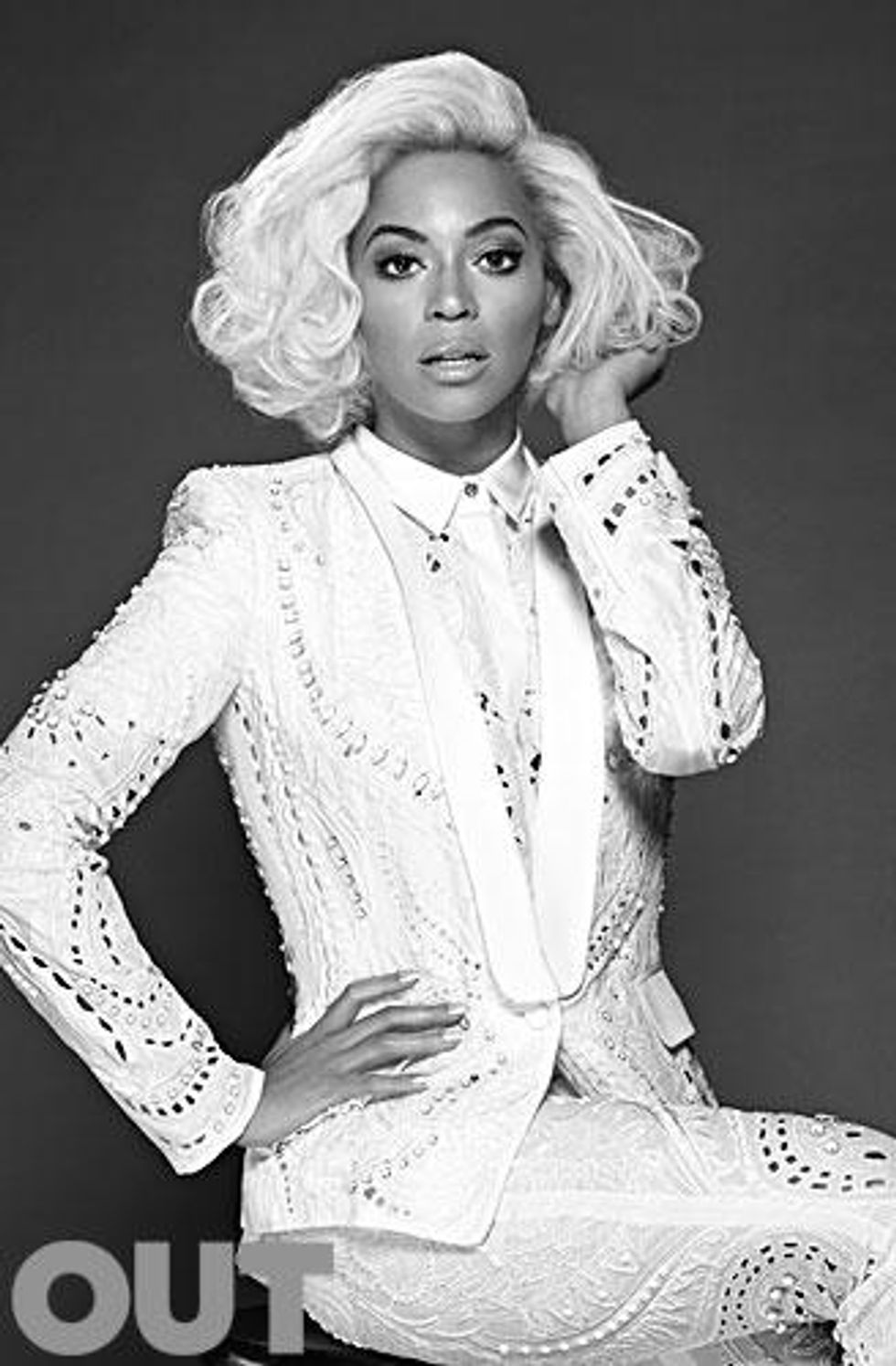
Of the 15,000 fans snaking into the venue that evening, the vast majority are young women, mostly white (it is Scotland), and primed for a big night out. A good number wear flashing plastic bows in their hair, echoing the one Beyonce sports so fetchingly in the video for "XO." (In the damp Glasgow air they look less adorable.) The evening's warm-up act is Monsieur Adi, the Italian-born, Paris-based producer whose remixes of Britney Spears, Lana Del Rey, and Madonna have elevated him to a club favorite. Adi wears a permanent grin, like a kid who can't believe his luck. A former architecture student-turned-fashion designer, Adi stumbled into remixing after a friend heard the music he'd made for his website. Now he was DJing his first concert tour. Two months earlier, he'd woken up in the early hours of December 13 to an email from Courtney Anderson, Beyonce's dance curator and A&R consultant. ("I always dressed to the beat of my own drum," Anderson tells me. "I was that person who'd put on pajamas, a sarong, a T-shirt, and some flip-flops and go to school.") Anderson wanted Adi to call him. "I gave him a call and he said, 'Yeah, we'd like you to remix two tracks.' " says Adi. "I said, 'Two tracks? Are you sure? I'm speechless...' "
EXCLUSIVE: LISTEN AND DOWNLOAD REMIXES OF 'XO' & 'BLOW'
Like most of the staff at Parkwood, Anderson was in the office at midnight when the album dropped. "I've never had so many grown men and women send me 'OMG' tweets," he says with a laugh, recounting the hours he had spent handing out remixing assignments to his favorite producers. "The initial reaction was, 'Why didn't you tell me?' And I was like, 'But it's here! Isn't it great? What's your favorite track?' And then the conversation quickly switched to the music."
Which had been the point all along.
Out: On certain songs, like "XO," your voice is a lot more raw (and beautiful) than fans are used to. Was it a conscious decision to be less polished?
Beyonce: When I recorded "XO" I was sick with a bad sinus infection. I recorded it in a few minutes just as a demo and decided to keep the vocals. I lived with most of the songs for a year and never rerecorded the demo vocals. I really loved the imperfections, so I kept the original demos. I spent the time I'd normally spend on backgrounds and vocal production on getting the music perfect. There were days I spent solely on getting the perfect mix of sounds for the snare alone. Discipline, patience, control, truth, risk, and effortlessness were all things I thought about while I was putting this album together.
If you want to understand the origins of Beyonce, start with Angie Beyince, vice president of operations at Parkwood Entertainment, and Beyonce's first cousin. The similarity in their names is no coincidence: Beyonce's mother--Beyince's aunt--is Tina Beyince (the name comes from their Creole ancestry), and the cousins were so close growing up that they spent every summer together. "The last day of school, Aunt Tina would pick me up and I'd spend the entire summer at her house, and then be dropped back home the night before school started again," Beyince recalls, quickly finding her stride as we sit in her glass-walled office one frigid afternoon in February. A big Chanel purse sits next to her desk; she wears bright orange nail polish with lipstick to match. When I ask what shade of orange it is, she shakes her head playfully. "A lady never tells!" she quips. "They call me the fourth member of Destiny's Child. I'm like the original diva. I don't tell my lipstick colors, my perfume. I've been wearing the same perfume for maybe 14 years, and I've never uttered the words to anyone."
Back in the mid- to late '90s, before she started wearing that mystery perfume, before she could afford a Chanel purse, Beyince was a fixer of sorts: tour accountant, travel booker, media liaison, laundry washer--if it needed doing, she would do it. She recalls hours spent finagling rooms at cheap hotels by trading T-shirts and autographed photos, washing outfits by hand or in machines at whatever semidecent hotel they'd booked themselves into, and hectic nights as a dresser, changing the girls' clothes during the show. "I'd finish the show and go to the cash office with all the promoters and I'd count out the money, which is funny because I'm a very petite woman." She shrugs. "But I refer to myself as a lioness. I'm a bad chick. I don't play. I went in there with all male promoters, and I'd count that money out. The first day I did that they were a dollar short. And I said, 'I'm missing a dollar.' They said, 'Oh no, baby girl,' everything to shrink me, to diminish me--'Oh no, sweetie pie, oh no, honey, no, no.' I said, 'OK, I'll count again.' " Beyince mimes the actions of counting bills, explaining that this whole process would typically take hours--she is abbreviating for me--but of course she eventually got her dollar.
SLIDESHOW: EXCLUSIVE PHOTOS OF BEYONCE
"I shared a room with the choreographer at the time, and while she was sleeping I would stay up and count all the money, do the payroll, all the expenses," she says. "I only got maybe two or three hours of sleep each day. Then I'd be back at that cash office: 'Five dollars short.' At the end of the tour, every single dollar was accounted for."
Beyince is, of course, a perfect evocation of the kind of female resourcefulness and grit that Beyonce was referring to when she described herself recently in Vogue UK as a "modern-day feminist." The claim has been much debated on blogs, and you have to admire Beyonce for daring to go there. A minor skirmish has erupted around a lyric in "Drunk in Love": "Eat the cake, Anna Mae," apparently lifted from a scene of abuse in the 1993 Tina Turner biopic, What's Love Got to Do with It? For some, this strains Beyonce's credibility, but Beyonce's masterstroke was to find a way to ensure that none of this mattered, by getting her music to the fans before the critics, professional and self-appointed, had time to weigh in. That, too, is power.
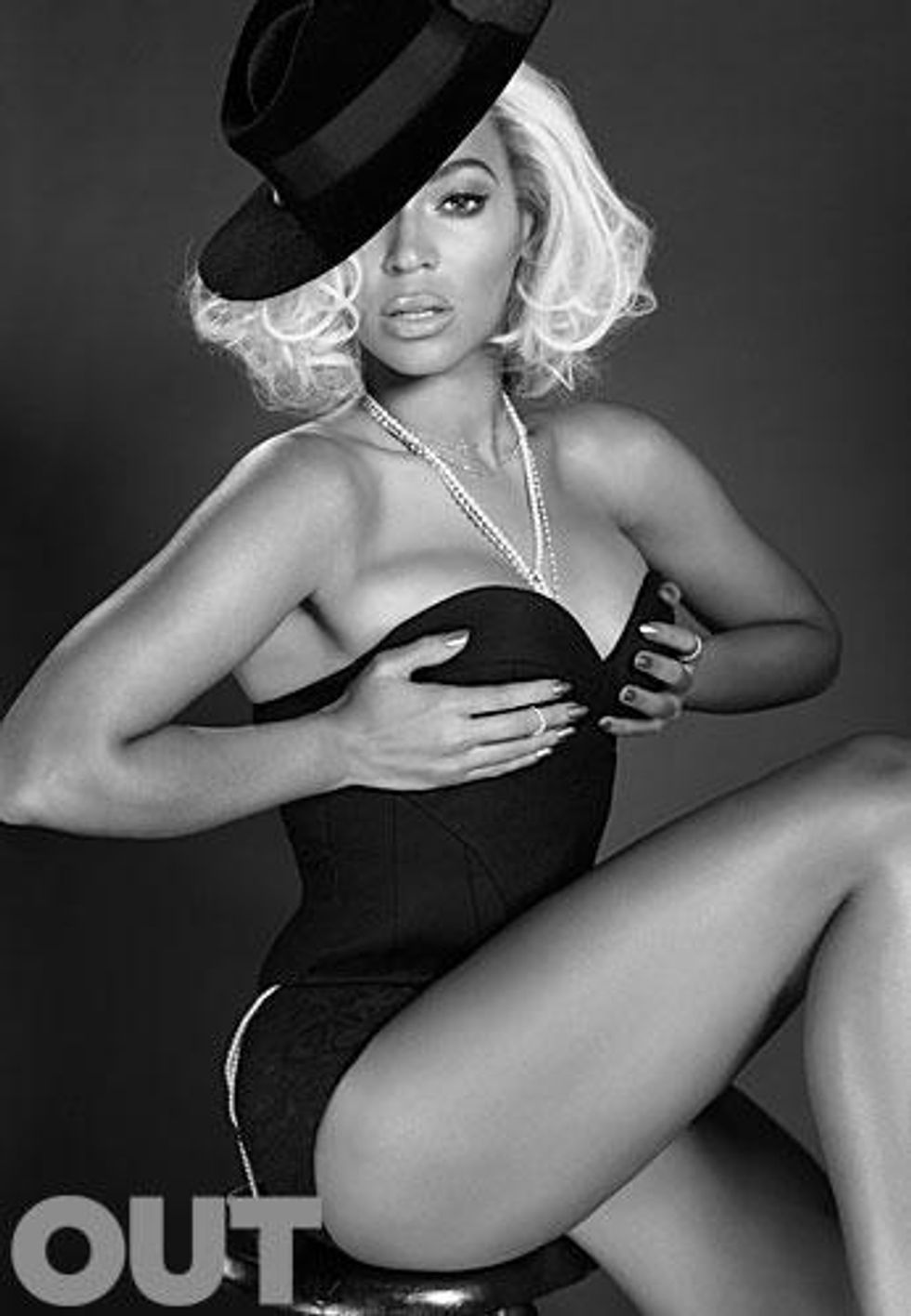
Spade-calling is something of a nascent role for Beyonce, who unleashed her inner activist on Instagram last year, posting messages of support for marriage equality and the Justice for Trayvon Martin campaign. Like Madonna, she appears to have found her voice as she's grown and blossomed into a global star and businesswoman. It's no small feat for a black woman to be able to express both her power and her sexuality without being reduced in the process to a whore who has forgotten her place. As she says in a new campaign designed to help young girls develop self-esteem, "I'm not bossy--I'm the boss." It's a hackneyed sound bite, but on stage, where Beyonce is at her best and most powerful, you witness how that same confidence resonates and connects. With her all-female backing crew, the Sugar Mamas, Beyonce gave her Scottish fans a show to remember that night, but she gave them something else, too: a role model.
Out: Your fifth album has been noted for being feminist, but a number of people in the LGBT community also identify with it. Were the lyrics ever written consciously with different groups in mind?
Beyonce: While I am definitely conscious of all the different types of people who listen to my music, I really set out to make the most personal, honest, and best album I could make. I needed to free myself from the pressures and expectations of what I thought I should say or be, and just speak from the heart. Being that I am a woman in a male-dominated society, the feminist mentality rang true to me and became a way to personalize that struggle...But what I'm really referring to, and hoping for, is human rights and equality, not just that between a woman and a man. So I'm very happy if my words can ever inspire or empower someone who considers themselves an oppressed minority...We are all the same and we all want the same things: the right to be happy, to be just who we want to be and to love who we want to love.
When you talk with the team at Parkwood, it's striking how often Thriller comes up in conversation as a kind of Holy Grail for the music industry. "The way music is distributed is so greatly different than it was in the '80s and '90s," Lauren Wirtzer-Seawood, head of digital, laments one afternoon. "You don't have those three or four iconic albums a year; you have 400 albums that came out in a year, and you have to remember what you listened to."
At Beyonce HQ, as the team embarked on the project of releasing the fifth album, the specter of Thriller became something of a catalyst--the model of a cultural moment that the music industry no longer seemed capable of engineering. Part of the challenge was how to win attention long enough to give the music a chance. "I watched a 20-year-old lady go through the Miley Cyrus record in less than 35 seconds on iTunes when it came out," says Jim Sabey, head of worldwide marketing, grimacing at the memory. "She listened to seven seconds of each song, and I looked at her and she's, like, 'Ugh, it's terrible.' I said, 'How do you know? You didn't even listen to it.' "
EXCLUSIVE: LISTEN AND DOWNLOAD REMIXES OF 'XO' & 'BLOW'
This, then, is the flipside of the limitless new world in which musicians find themselves. No longer under the thumb of out-of-touch record executives, they find themselves instead at the mercy of ADD-afflicted music fans, surfing multiple sites at one time. You can imagine the anxiety at Camp Beyonce as summer turned into fall, and they witnessed first Lady Gaga, then Katy Perry, stumble. Both those artists' albums, ArtPop and Prism, came freighted with expectations, and both were leaked prematurely and almost immediately pronounced disappointments. "Beyonce put two years of her heart and soul into this album," says Sabey. "Any artist--a 13-year-old in Atlanta who puts together an album and puts it on YouTube--wants you to go on the journey. They want you to experience the art the way they intended it."
But the 13-year-old in Atlanta doesn't have the support team that Beyonce has so assiduously nurtured--a team that has known her for much of her adult life, and in some cases longer. "She's kept true to the people who have kept true to her," says Kwasi Fordjour, creative coordinator. "I think that's amazing--you rarely see artists who keep hold of their A-team throughout their career." (In an email, Beyonce returned the compliment, saying, "I call them the underdogs because so many people doubted the team I put together.")
Much of Beyonce was recorded in the summer and fall of 2012 in a purpose-built studio in the Hamptons. "It was kind of like Survivor or The Real World," recalls Melissa Vargas, the brand manager. "We slept in there. Everyone had a room. There was only a certain number of people that could come, so if you were vibing with her and everything was going great, you would stay for longer. We had a chef, and every single person in that house sat down at dinner with Jay and Beyonce."
It was Beyonce who decided not to preempt the release of her album with a single, or the typical campaign. She would simply upload it to iTunes, in one go. A big part of the challenge was how to fit the making of all those videos around Beyonce's global tour, which had kicked off last April. "Honestly, I was, like, 'You want to do what?' " recalls Vargas. "How are you going to shoot videos when she's on tour? I mean, directors need to prep." Beyonce, too, worried she was losing control toward the end of the process. "I was recording, shooting videos, and performing on the tour every night, all at the same time. At some point I felt like, What am I doing? Is this too ambitious? Even the day the record was to be released I was scared to death. But I also knew if I was that scared, something big was about to happen." Vargas found herself on a plane to Paris to shoot videos for "Flawless" and "Partition" with the English video director Jake Nava (who'd made the video for 2003's "Crazy in Love"), and proceeded from there to hopscotch around the world--Puerto Rico, Brazil, London, Paris, Australia, New Zealand, and Houston, where the video for "Blow" was filmed in a much-loved roller rink from Beyonce's childhood.
"What the visual album did for people was, they stopped and they watched the entire thing," says Sabey. "There was no way you could listen to the first six bars of Beyonce and skip to the next song. You were going to experience this album as a body of work."
Or, as Carl Fysh, Beyonce's U.K. publicist, tells me over a pint of beer after the show in Glasgow: "My generation remembers the excitement of knowing an album was coming out--you saved your pocket money, you went to the record store, you queued up, you got the album and took it home, but you hadn't heard a thing about it. You looked at everything, you put it on, and you played it 85 times. I think Beyonce, by doing what she did, let this generation have that experience--of having the album to yourself."





